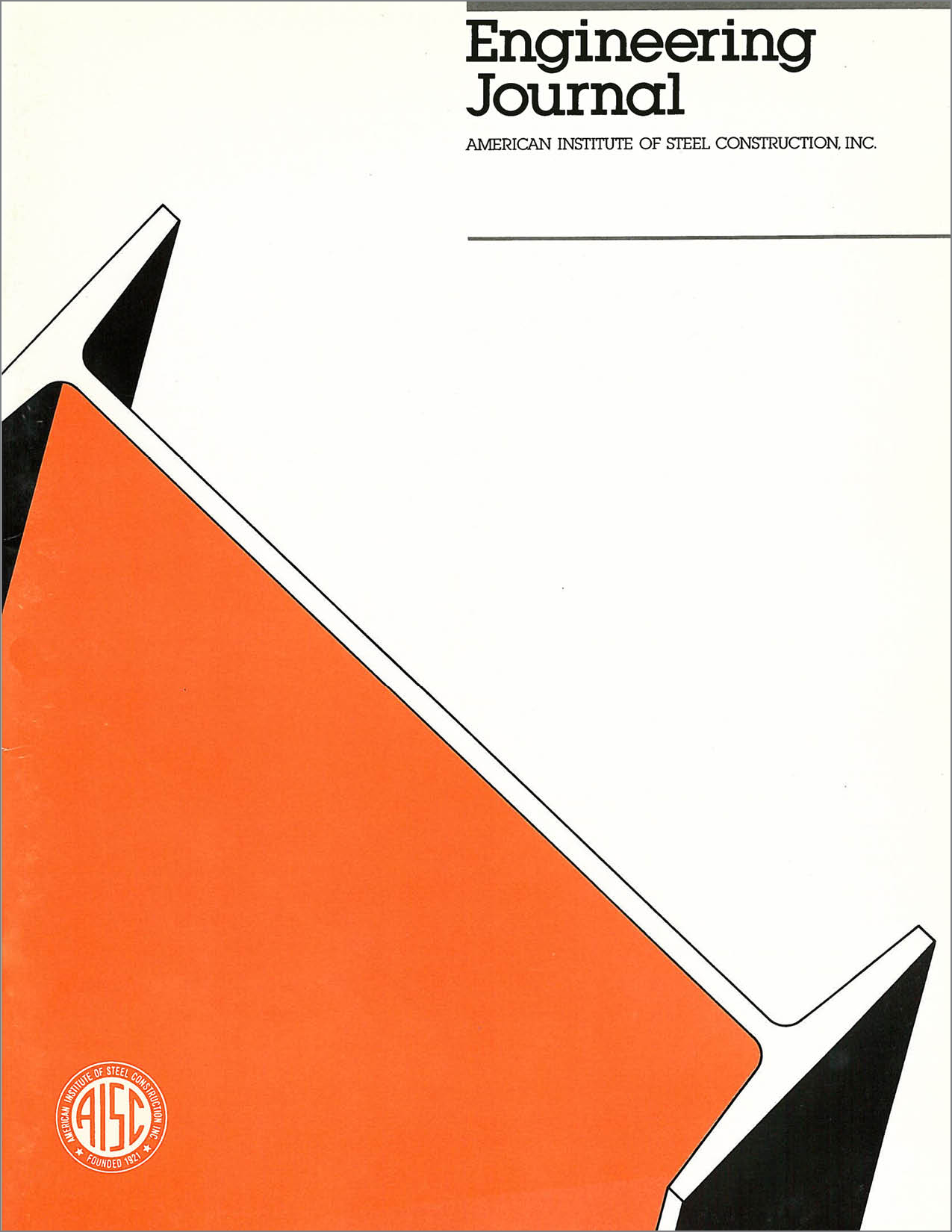Non-Slender Single Angle Struts
DOI:
https://doi.org/10.62913/engj.v29i2.590Abstract
A literature search indicated a lack of test results regarding non-slender single angle struts. The primary objective of this paper is to present and discuss the results of the tests conducted by the authors on non-slender single angle compression members. These angle members have equal legs and were tested to failure as part of a three-dimensional truss. The paper briefly describes the authors experimental program. The method of calculation of the member forces from the strain readings is discussed. The test results are given and six failure modes are identified. These failure modes depend on the member slenderness ratio, the angle leg width/thickness ratio, the end connection detail, and the eccentricity of the applied load. These failure modes can be generally classified as global with no appreciable local failures or local failures which triggered global failures in some cases. Finally, the design rules given by the AISC Specification for Structural Steel Buildings1-3 and the ASCE Manual 52 for the Design of Steel Transmission Towers4 are evaluated.

